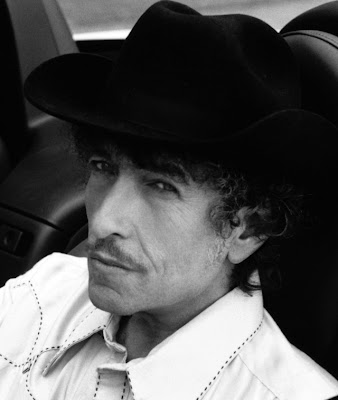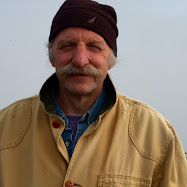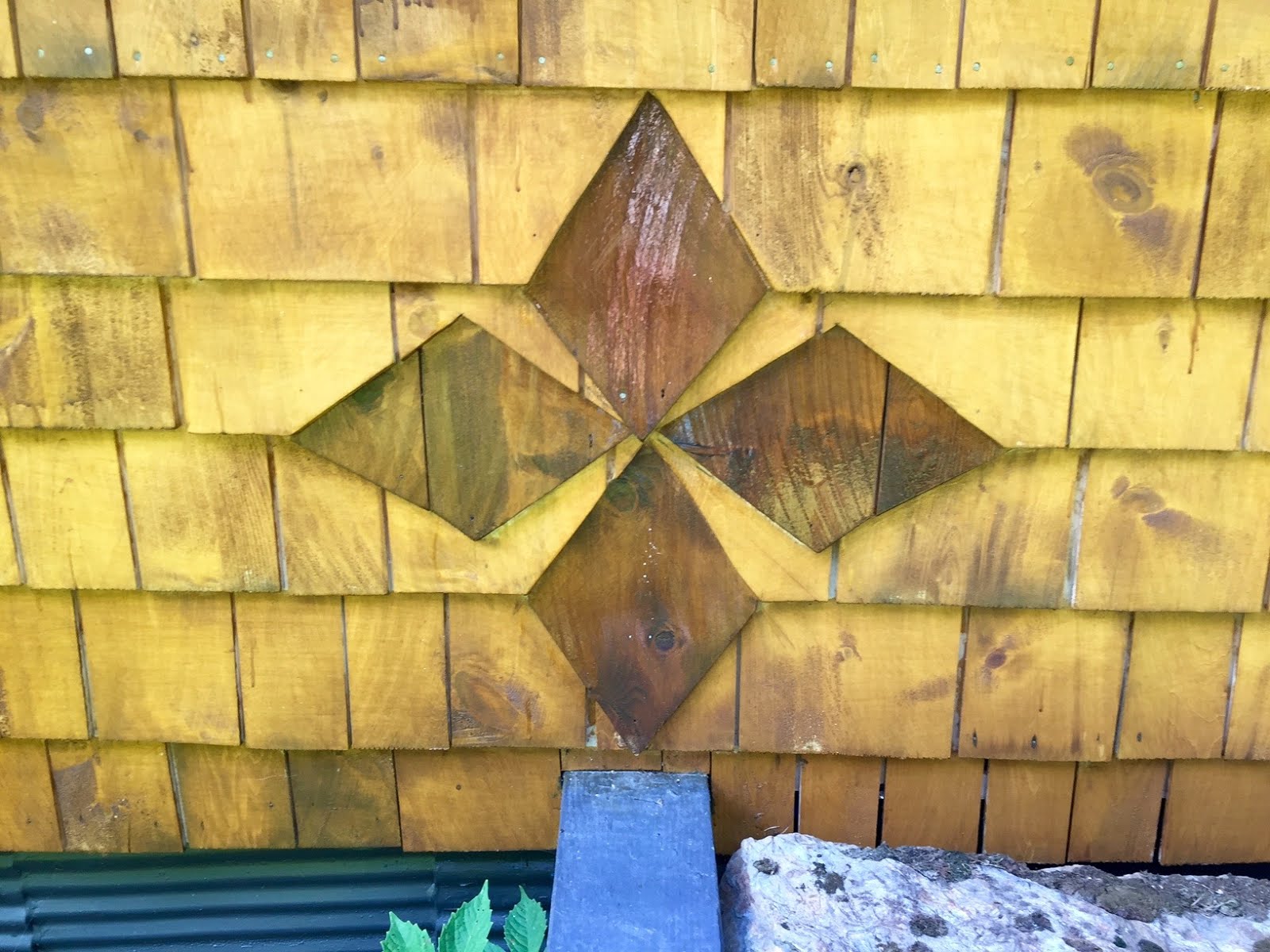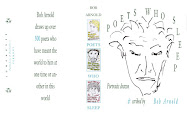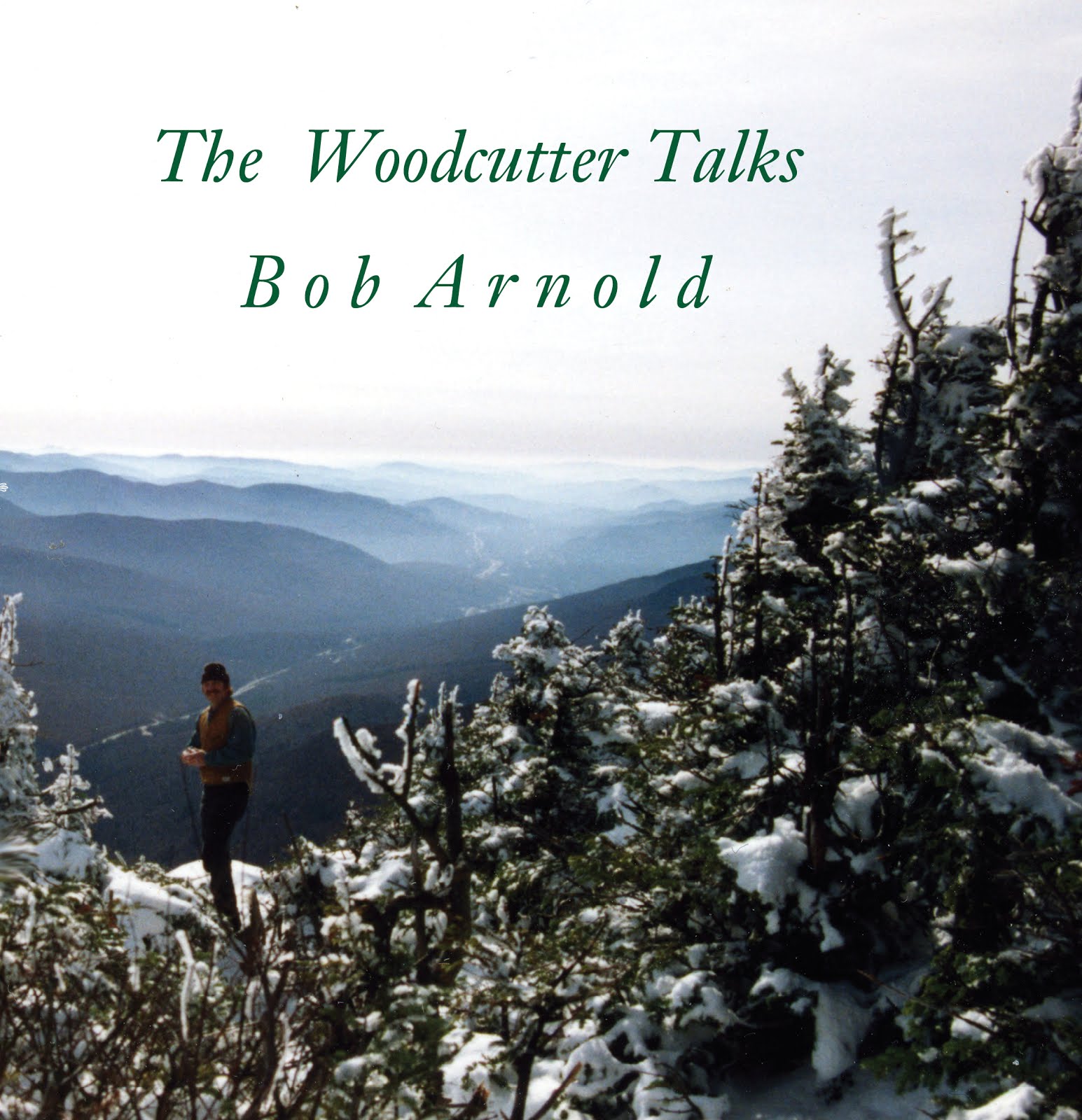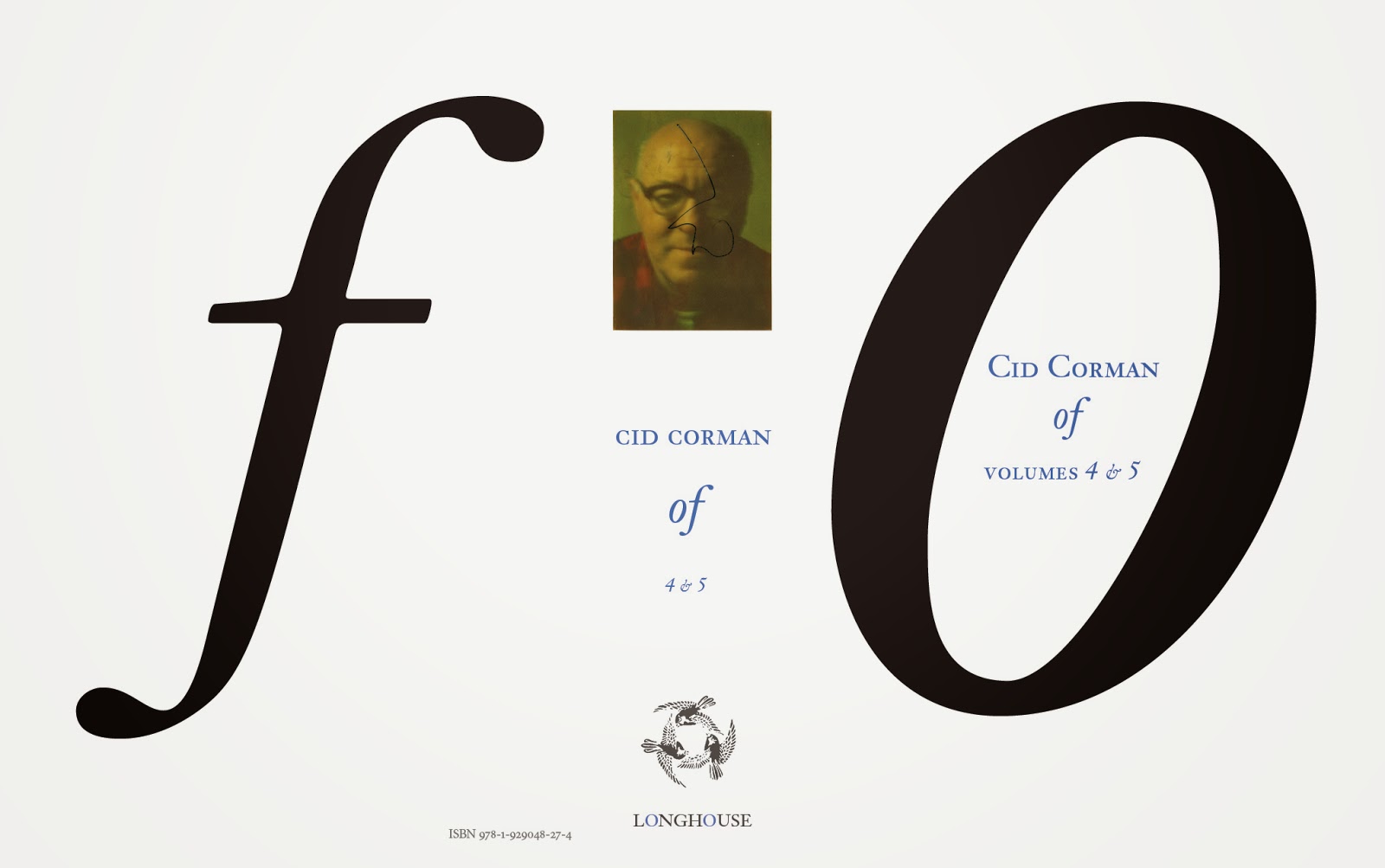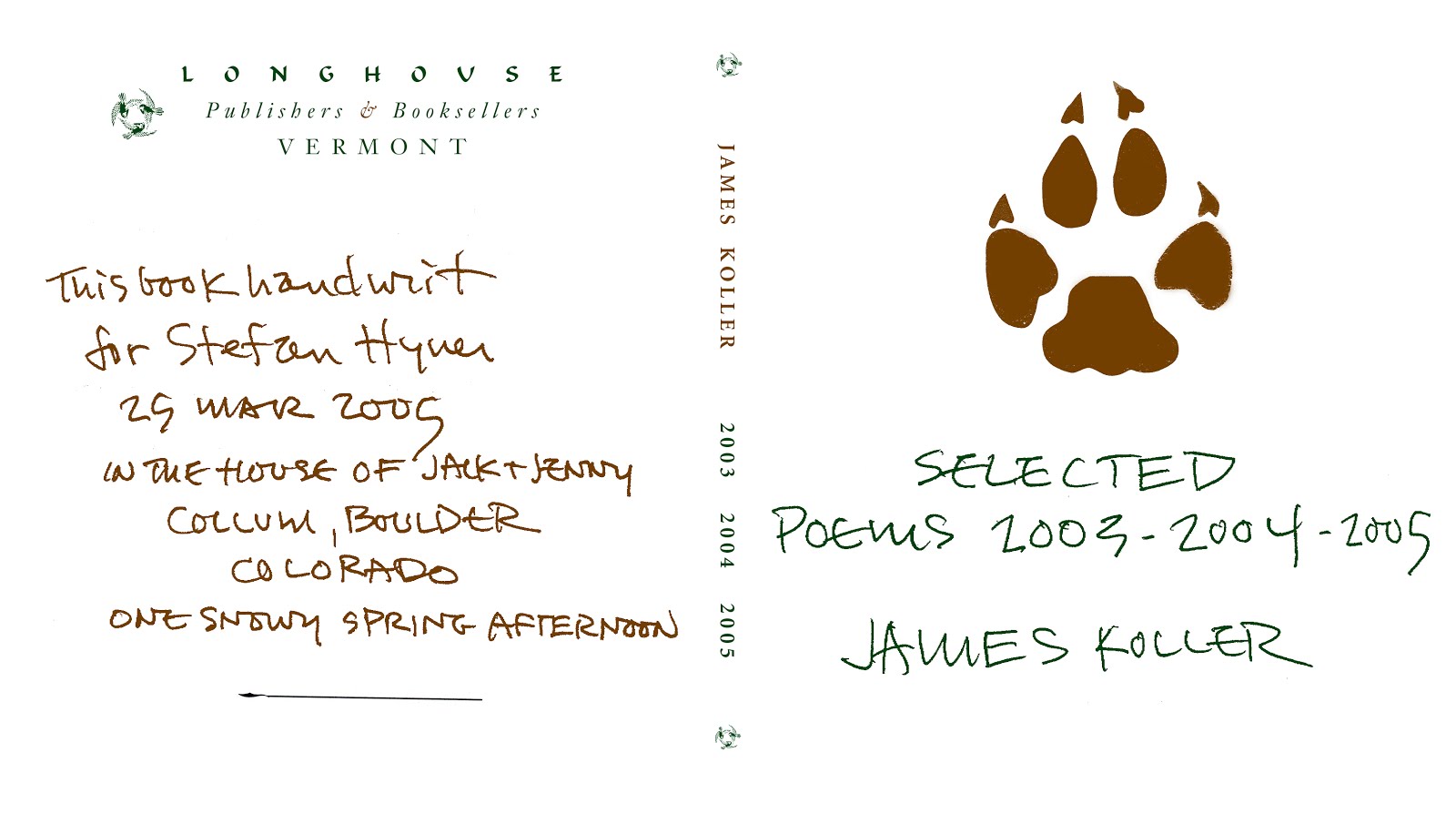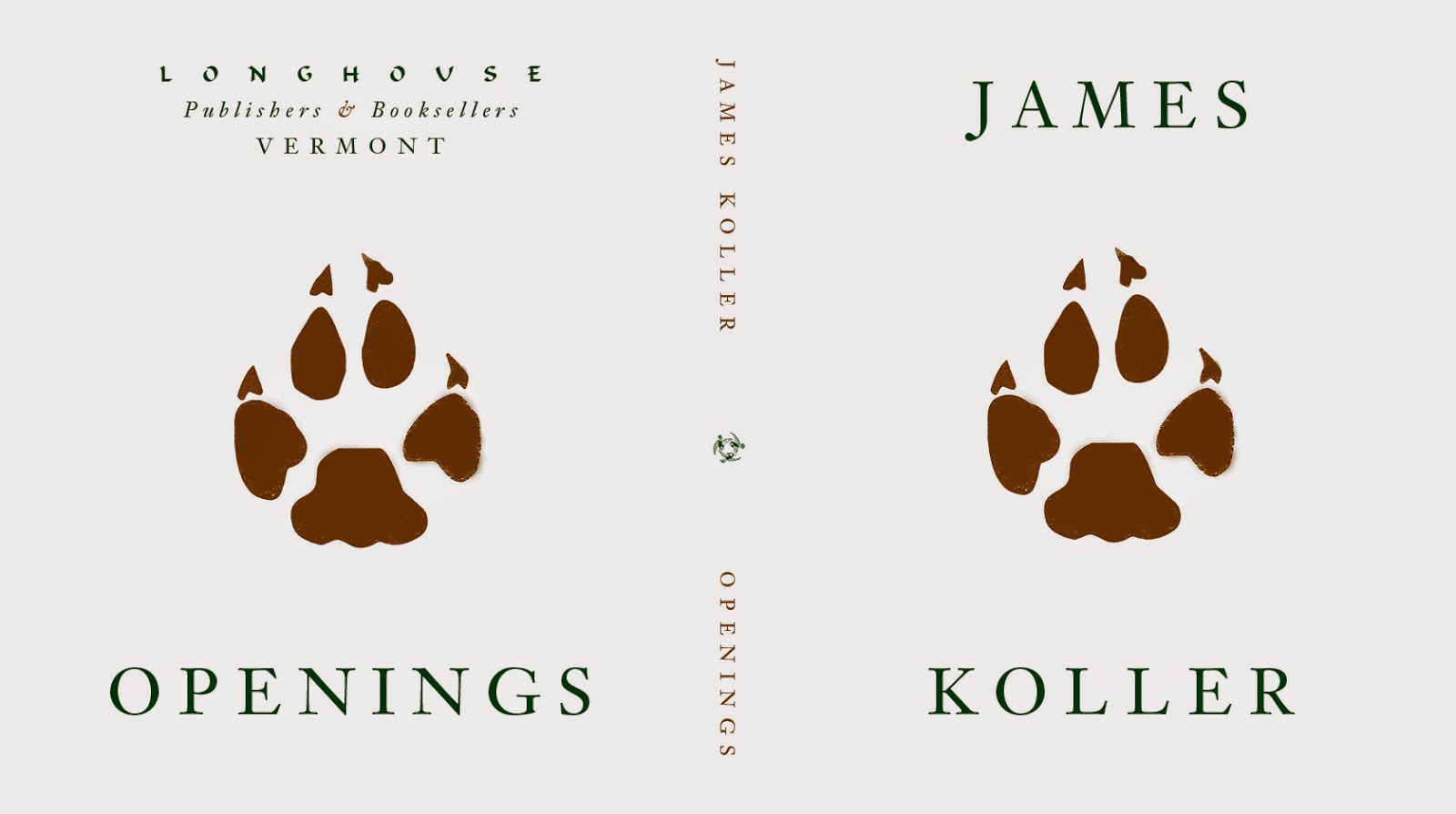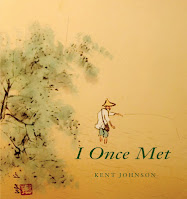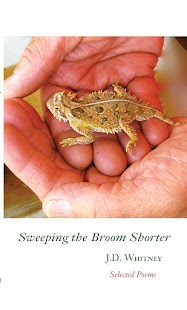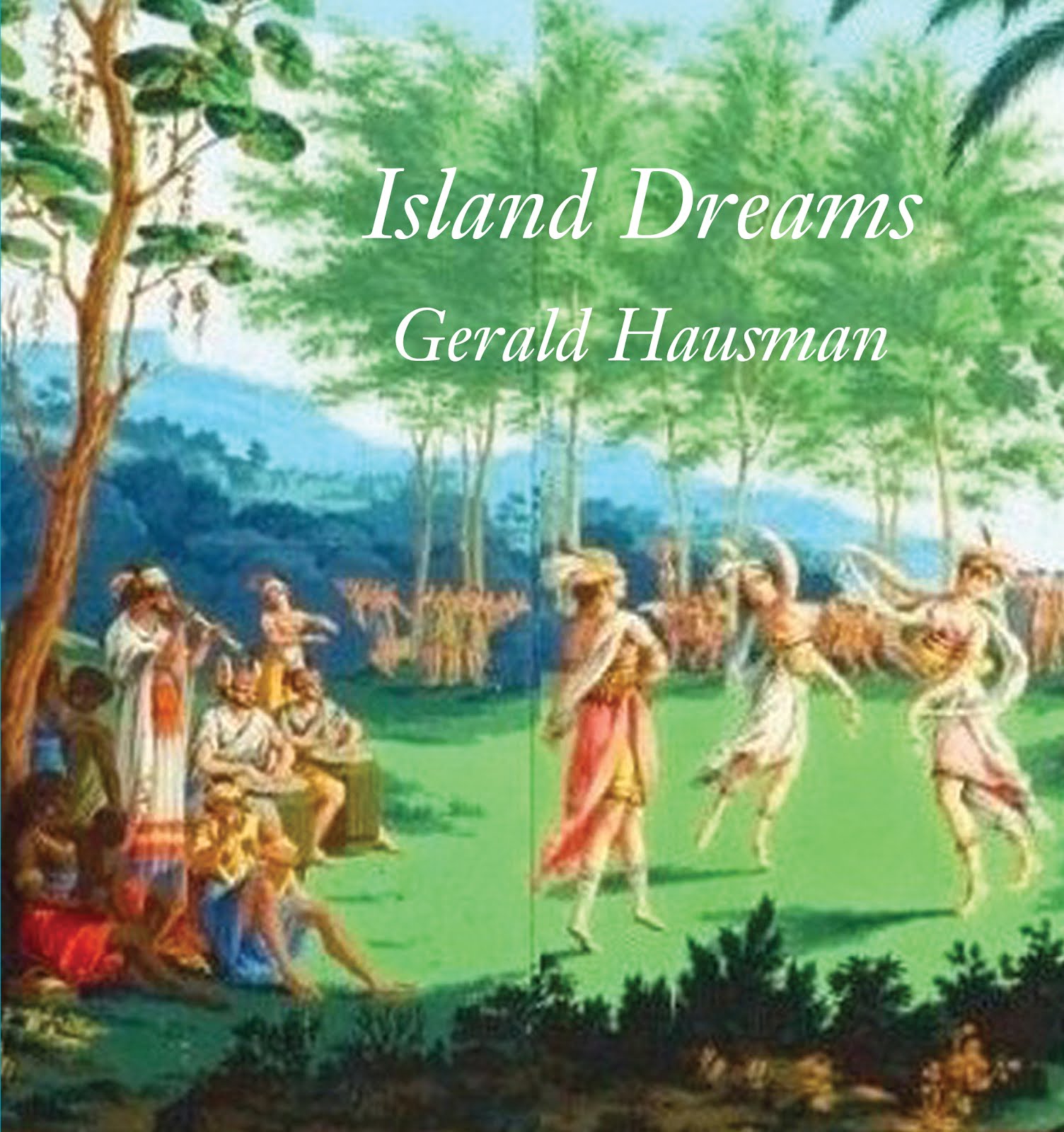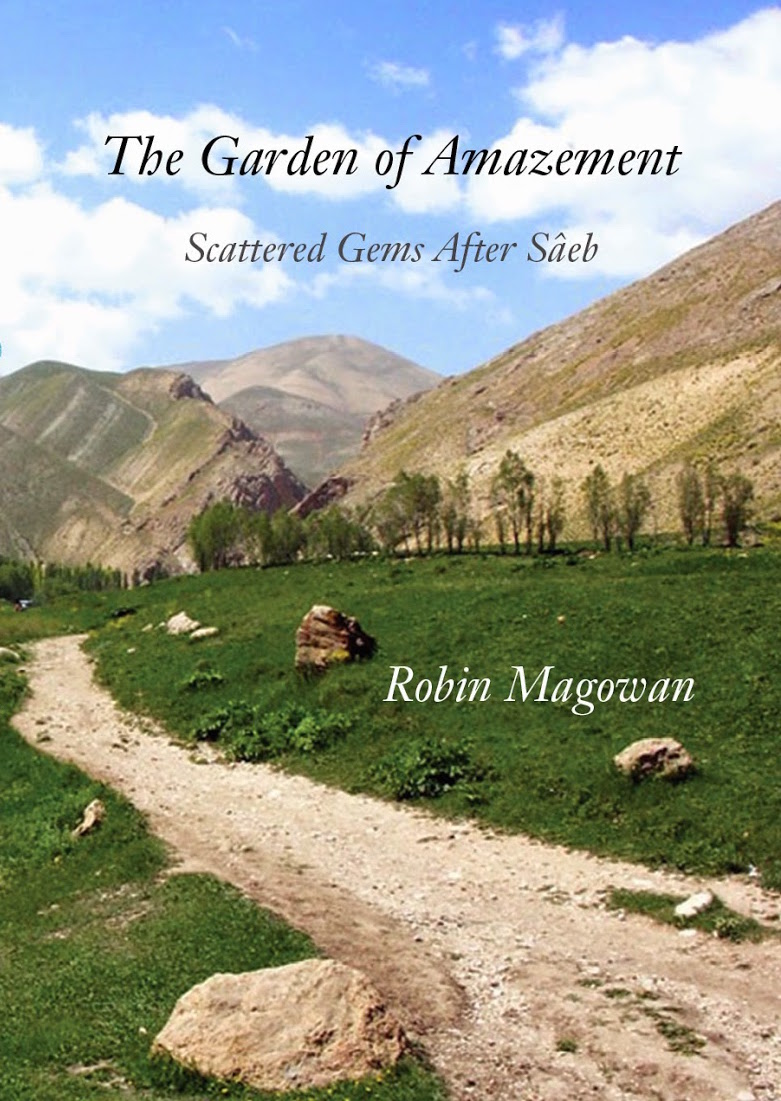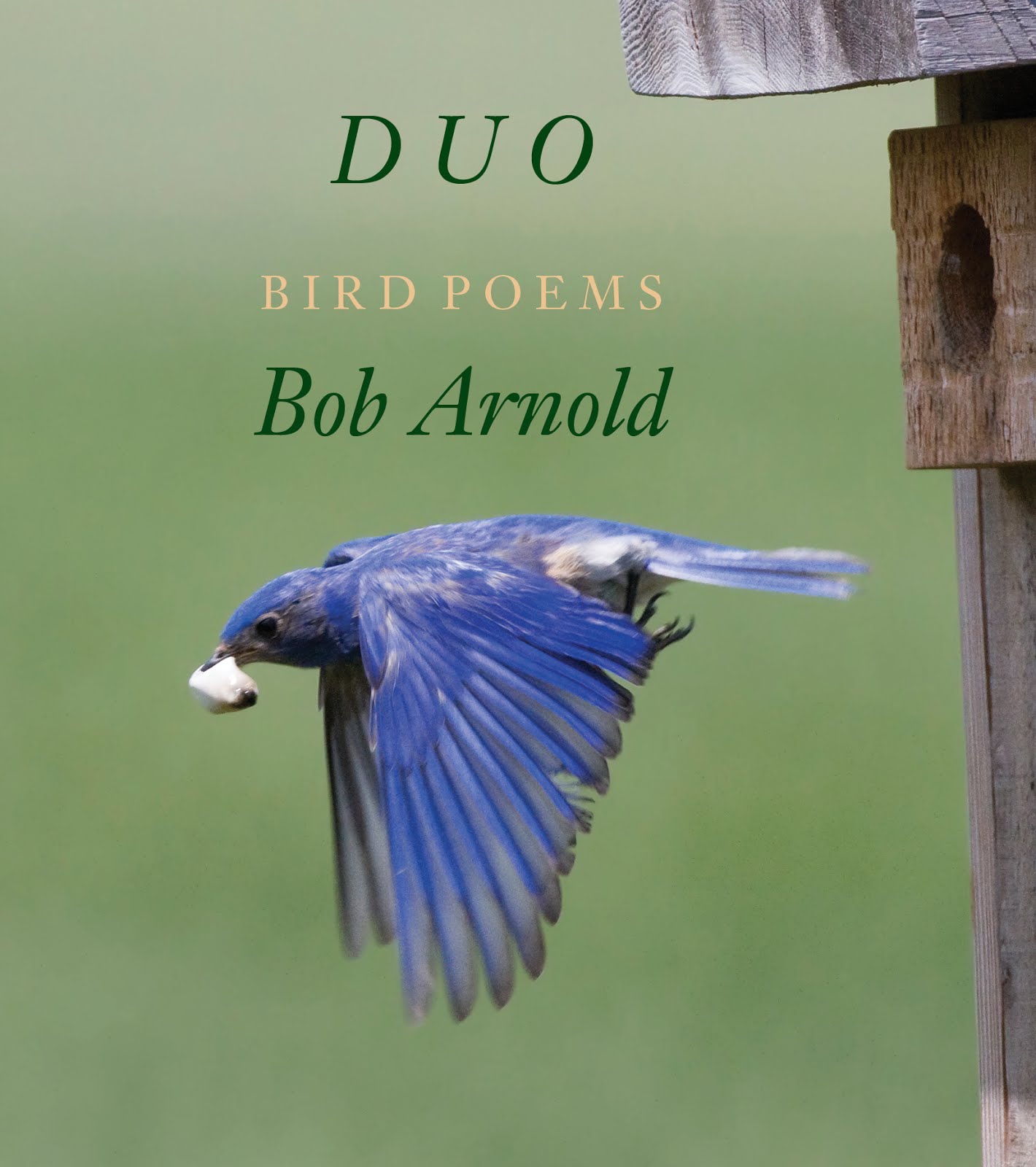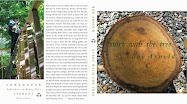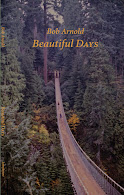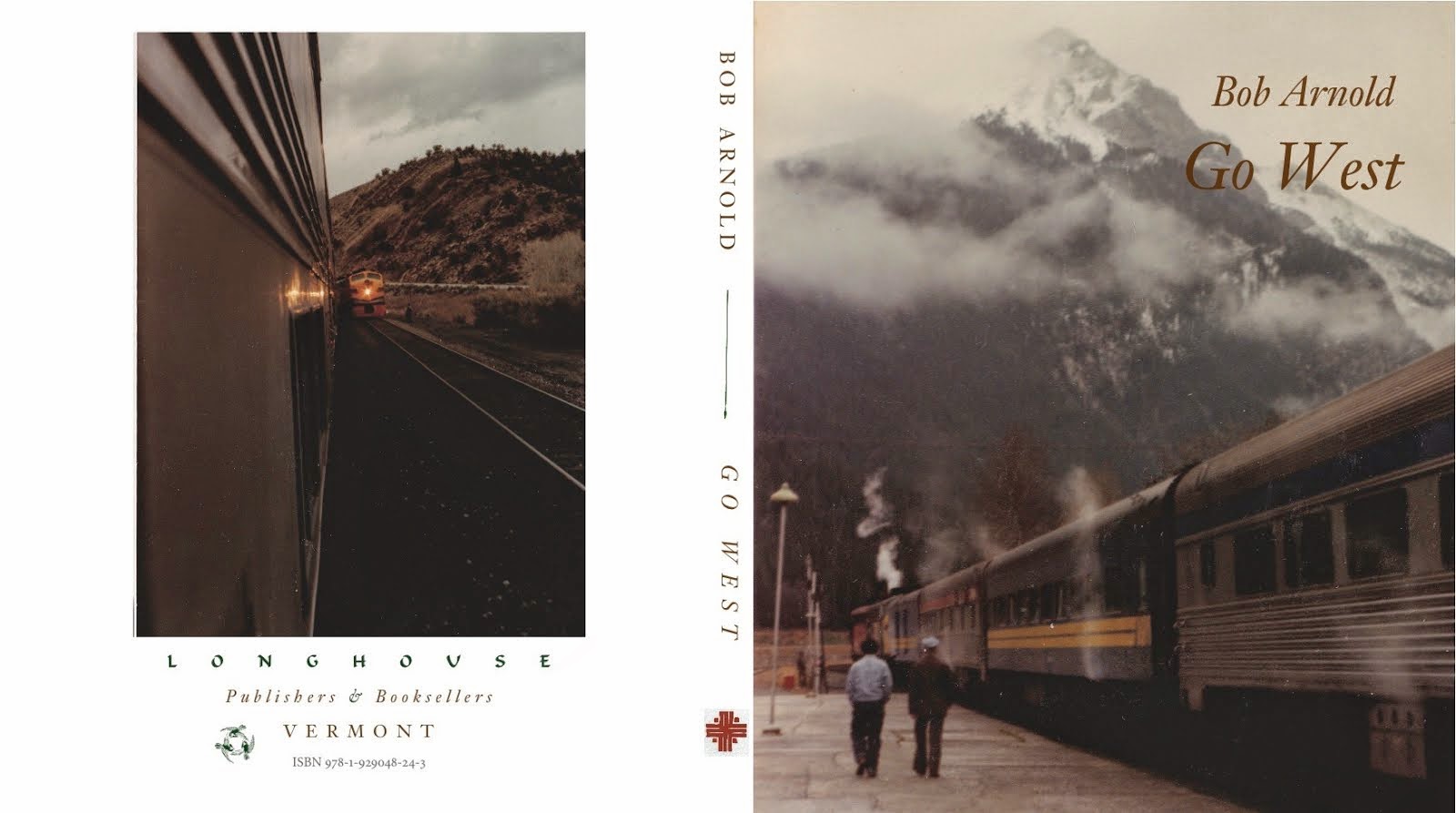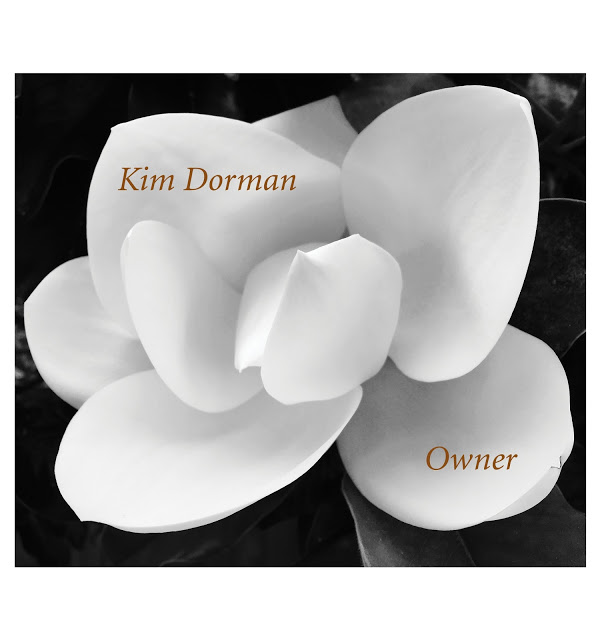BOB DYLAN
"Blind Willie McTell" is one of Bob Dylan's greatest ballads — some days it is his greatest ballad — written in 1983 and for whatever reason left off his album Infidels. Officially released in 1991 on his Bootleg Series Vol 1-3, it features Dylan grand on piano and Mark Knopfler on 12-string guitar, the very instrument McTell preferred for its "loudness". You can play this song and achieve an audience from kindergartens-to-prisons.Blind Willie McTell first showed up on Bob Dylan's album Highway 61 Revisted as "Georgia Sam he had a bloody nose"...Georgia Sam being one of the many recording names by McTell. Dylan has had a few aliases of his own. Born blind in one eye in 1898, McTell would become totally blind by late childhood, making his living busking and recording with his indelible 12-string finger picking Piedmont blues. He would record almost 150 songs from 1927-1956. A stroke took him from us in 1959 in the town of Milledgeville, Georgia, where Flannery O'Connor lived and wrote up a storm. Let's imagine she heard him sing, alive as you or me.
One could say Dylan returned to his fold millions of listeners around the world when he resurrected "Delia" on his album World Gone Wrong. It was after the lost years, which may have stretched a decade for him, through most of the 80s, when someone right now is reading this and ready to pick a fight by exclaiming: "But those are my favorite years for Dylan!" Maybe so. I have to tell you since 1964 I've never given up on him, and I was but a babe in 1964 holding on like it was a bible to my copy of Another Side of Bob Dylan. Those were poems on the back cover of the album — them-there-liner-notes — and I would protect that thought with every English teacher I had the next six years. Sides were drawn, you held fast.
Since those times at least two academics have risen faithfully and personally and done very well for the Dylan cause, which is really the cause of Harry Smith's archival recordings, big awful blowing fields of grain Carl Sandburg (who Dylan made sure to visit and pay homage to in his wildest years), slavery songs, and the Industrial Revolution burying the likes of Ma & Pa Kettle ; something one of the academics Greil Marcus calls "Old Weird America". But of course there is nothing weird about it. It's your forefathers & mothers, and gorgeous elm and oak and maple trees I can still find, and which were planted by somebody (Lorine Niedecker's pop was a treeplanter in Wisconsin) in old town America everywhere I go. The smarmy Capitalists built then killed off the factories and the jobs, the schools, and boarded up the neighborhoods and inducted us all to drugs and very cheap living and begging, but they haven't yet got all the trees. I've been making miniature documentaries with my camera visiting some small towns and falling in love with the grandeur of their trees. Just waiting there for us. Too big sometimes to move, even by the best of the narrow-minded earth moving denizens, who believe 'another building' is just what 'space' needs. No, space evolves in space. And this is where Dylan has always worked out of — space — and to this day. He may look like a crafty-one in the photograph above, most likely is. Most likely has taught himself how to be, survival instincts and all that. He's got a message and he plans to see it through. His voice, that many have high-tailed it to the hills to get away from, is just about at that point of entering the league of the true blues singers pantheon.
The second academic, Sean Wilentz, is the other one you simply must read — he is just as much the true blue American story and the ideal candidate to write this half-century old tale of Dylan wonder. Nothing weird about any of this. It's apple pie and timber; FDR, Truman, the bomb, Eisenhower, new highways and Kerouac; pretty girls and mainly savages. Did you hurt yourself? Did you hurt some others? Imagine as a child running free all day and into the night, no money in my pockets. As a child my wife rode her bicycle like one more angel down the Sunset Strip. No harm. Bukowski was prowling a couple of neighborhoods over, but no one knew yet. Not really. Nothing weird about any of it. Farms existed, extended families worked the tractor, hitched a plow, barns grew full of slated sunshine and hay. John Locke said years before any of this (said has always been there before written, never forget that poets): In the beginning all the world was America. Dylan put that in his pipe and smoked it. It got weird after that, awful weird.
A book with handsome paper stock for a change in a land of cheapened cloth copy books, excellent and new to the field photographs, Al Kooper endorsed.
Coda ~
As I was finishing stitching this piece together Irwin Silber passed away. He was one of the grand American folklorists, founder (with Pete Seeger and others) of Sing Out! magazine. Husband to another folk hero singer Barbara Dane. Great roots. Early in Bob Dylan's career he took him on with an open letter published in Sing Out! It went in part:
“I saw at Newport how you had somehow lost contact with people,” he wrote, (ed. Newport Folk Festival 1964). “It seemed to me that some of the paraphernalia of fame were getting in your way.”....
“Your new songs seem to be all inner-directed now, inner-probing, self-conscious — maybe even a little maudlin or a little cruel on occasion. And it’s happening onstage, too. You seem to be relating to a handful of cronies behind the scenes now — rather than to the rest of us out front.”
Irwin Silber, Sing Out! November 1964
Maybe Dylan was addressing Silber later on with one of his masterpieces on the subject of cruelty "Positively 4th Street". Who knows, who cares. Silber did nail Dylan, and I believe correctly, but he might have been a bit more cautious to what he was taking on.
Dylan has forever been a change-up artist: protest songs for some years, then a year after the Silber fracas he goes into the studio and cuts one of the greatest examples of rock 'n' roll meets the blues (which means folk, or as Thelonious Monk once informed Dylan, "We all play folk music.") with the album Highway 61 Revisited. And if that didn't send you swooning (or screaming) it was followed the year later by a double album extravaganza Blonde on Blonde. The first ever studio recorded double album. The Mothers of Invention would unleash their double album Freak Out! six weeks later.
Decades onward we'd receive the Baul singer Purna Das on the album jacket photograph with Dylan and other merry pals for John Wesley Harding, Johnny Cash in duet with Dylan on Nashville Skyline, the creme de creme of Nashville musicians often working with him, the religious songs, the Hurricane, Froggie Went A-Courtin', that Rolling Thunder, drugs, mischief, divorce, backup singer lovers, old tunes, crooning tunes, a cowboy hat, deckled suits, a big jump start on a memoir in many volumes — I once saw him perform in a hoodie he never removed — Children of Paradise white face, and so much more. A folk artist if there ever was one. Irwin Silber (1925-2010), I believe, lived long enough to witness.
As I was finishing stitching this piece together Irwin Silber passed away. He was one of the grand American folklorists, founder (with Pete Seeger and others) of Sing Out! magazine. Husband to another folk hero singer Barbara Dane. Great roots. Early in Bob Dylan's career he took him on with an open letter published in Sing Out! It went in part:
“I saw at Newport how you had somehow lost contact with people,” he wrote, (ed. Newport Folk Festival 1964). “It seemed to me that some of the paraphernalia of fame were getting in your way.”....
“Your new songs seem to be all inner-directed now, inner-probing, self-conscious — maybe even a little maudlin or a little cruel on occasion. And it’s happening onstage, too. You seem to be relating to a handful of cronies behind the scenes now — rather than to the rest of us out front.”
Irwin Silber, Sing Out! November 1964
Maybe Dylan was addressing Silber later on with one of his masterpieces on the subject of cruelty "Positively 4th Street". Who knows, who cares. Silber did nail Dylan, and I believe correctly, but he might have been a bit more cautious to what he was taking on.
Dylan has forever been a change-up artist: protest songs for some years, then a year after the Silber fracas he goes into the studio and cuts one of the greatest examples of rock 'n' roll meets the blues (which means folk, or as Thelonious Monk once informed Dylan, "We all play folk music.") with the album Highway 61 Revisited. And if that didn't send you swooning (or screaming) it was followed the year later by a double album extravaganza Blonde on Blonde. The first ever studio recorded double album. The Mothers of Invention would unleash their double album Freak Out! six weeks later.
Decades onward we'd receive the Baul singer Purna Das on the album jacket photograph with Dylan and other merry pals for John Wesley Harding, Johnny Cash in duet with Dylan on Nashville Skyline, the creme de creme of Nashville musicians often working with him, the religious songs, the Hurricane, Froggie Went A-Courtin', that Rolling Thunder, drugs, mischief, divorce, backup singer lovers, old tunes, crooning tunes, a cowboy hat, deckled suits, a big jump start on a memoir in many volumes — I once saw him perform in a hoodie he never removed — Children of Paradise white face, and so much more. A folk artist if there ever was one. Irwin Silber (1925-2010), I believe, lived long enough to witness.
